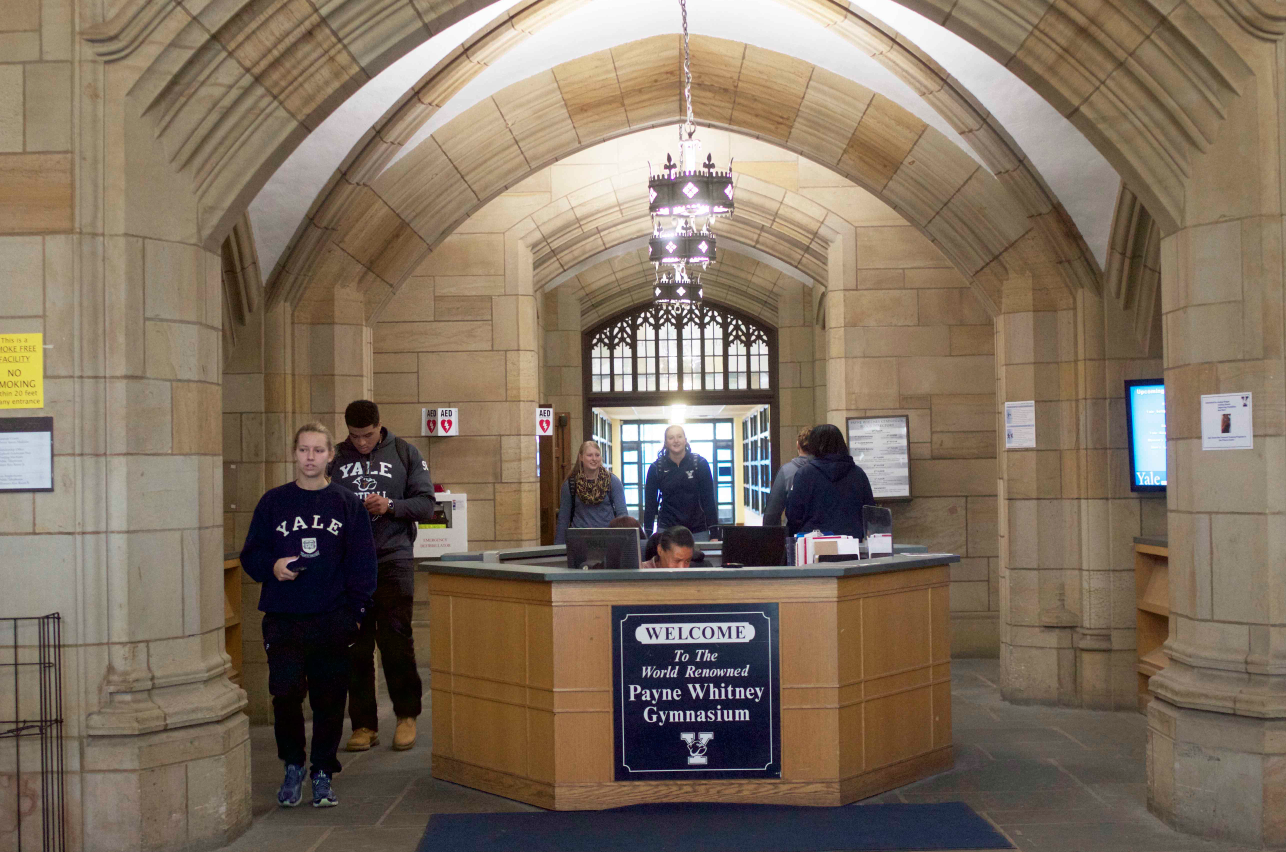
As leaders of cultural centers and residential colleges have extended support to students who have been affected by recent campus events regarding race and alleged discrimination, Yale’s athletic administration is taking similar steps to comfort and accommodate student-athletes.
On Friday, Director of Athletics Tom Beckett sent out an email to all varsity athletes encouraging students to reach out to administrators, coaches and teammates if they have any questions about the current campus climate. Beckett sent a second message Monday, asking student-athletes to fill out a one-page survey with their thoughts on current happenings as well as their experiences with marginalization in general. The survey received over 200 replies in 24 hours, Beckett said. In addition to the administration’s response, some coaches have also been meeting with their teams in order to address the current state of campus climate.
“The Yale Athletics family strives to create a safe, welcoming place for all,” Beckett wrote in his Friday email. “Our doors are always open. In athletics we want to be a part of the dialogue and part of the solution to make Yale the best place it can be.”
The survey asked student-athletes about on-campus experiences, such as whether they had ever felt marginalized at Yale and if they were concerned with “the situations that are currently happening on campus.”
However, the survey also had more proactive questions, asking student-athletes how they think the athletic department might contribute to a potential solution, and if student-athletes would be interested in attending an open meeting to share thoughts and ideas. Beckett said the event, termed “Listening to our Athletes,” is tentatively scheduled for Nov. 16 at 9:30 p.m.
Student-athletes interviewed said they were satisfied with the athletics administration’s outreach effort.
“Mr. Beckett, [baseball head coach John] Stuper and our captain, Chris Moates ’16, have all been very open to discussion and have been extremely willing to hear our thoughts, concerns and whatever else we might need to express about the situation,” baseball player Harrison White ’17 said.
Chandler Gregoire ’17, who wrote a column for the News on Monday about her experience as one of the few students of color on Yale’s sailing teams, expressed similar sentiments. After her column was published, both her coach and her captain reached out to her in support. Gregoire said she will be meeting with the athletic department to discuss solutions to the problems she has encountered as a minority student on the team. These problems include being significantly less wealthy than her teammates and feeling pressured to not mention their difference in race.
Gregoire also touched upon the impact student-athletes can have in their community, citing recent events at the University of Missouri as an example of what student-athletes can achieve.
Earlier this week, Missouri President Tim Wolfe resigned after players on the school’s football team, citing issues with Wolfe’s handling of racist incidents against students of color, staged a boycott. The players refused to participate in their next game — which will take place this Saturday — until Wolfe stepped down. The boycott received national attention, and on Monday morning, two days after the boycott was announced, Wolfe announced his resignation.
“I think that athletes and athletics, as illustrated by the University of Missouri, can use their position to affect positive change in the wake of the recent events on campus,” men’s soccer player Max Cook ’17 said.
Women’s golf head coach Chawwadee Rompothong ’00 also noted that the Yale athletic community can have a large impact on the campus as a whole, but said she has not spoken directly with her players, who are in their offseason, about the issue.
Football head coach Tony Reno said that he has discussed the ongoing events with his players, and he views the diverse makeup of his team as a positive factor in the team’s ability to handle these discussions.
“One of the beauties of our team is that we have guys from every corner of the country, many different ethnicities, religions and races,” Reno said. “The melting pot of the University is Yale football, as far as we see it.”
Cook added that although athletes often spend much time at practice, he and several of his athlete friends have been participating in events around campus this past week, including the March of Resilience on Monday.
Football player Bo Hines ’18 said he has spoken to many athletes who are currently pondering initiatives to help stimulate the ongoing movement.
“Every athlete who I have spoken to fully supports the movement to end discrimination and marginalization on this campus,” Hines said. “The athletes, along with the entire Yale community, must be willing to stand up for what is right.”
There are 33 varsity athletic teams at Yale.







